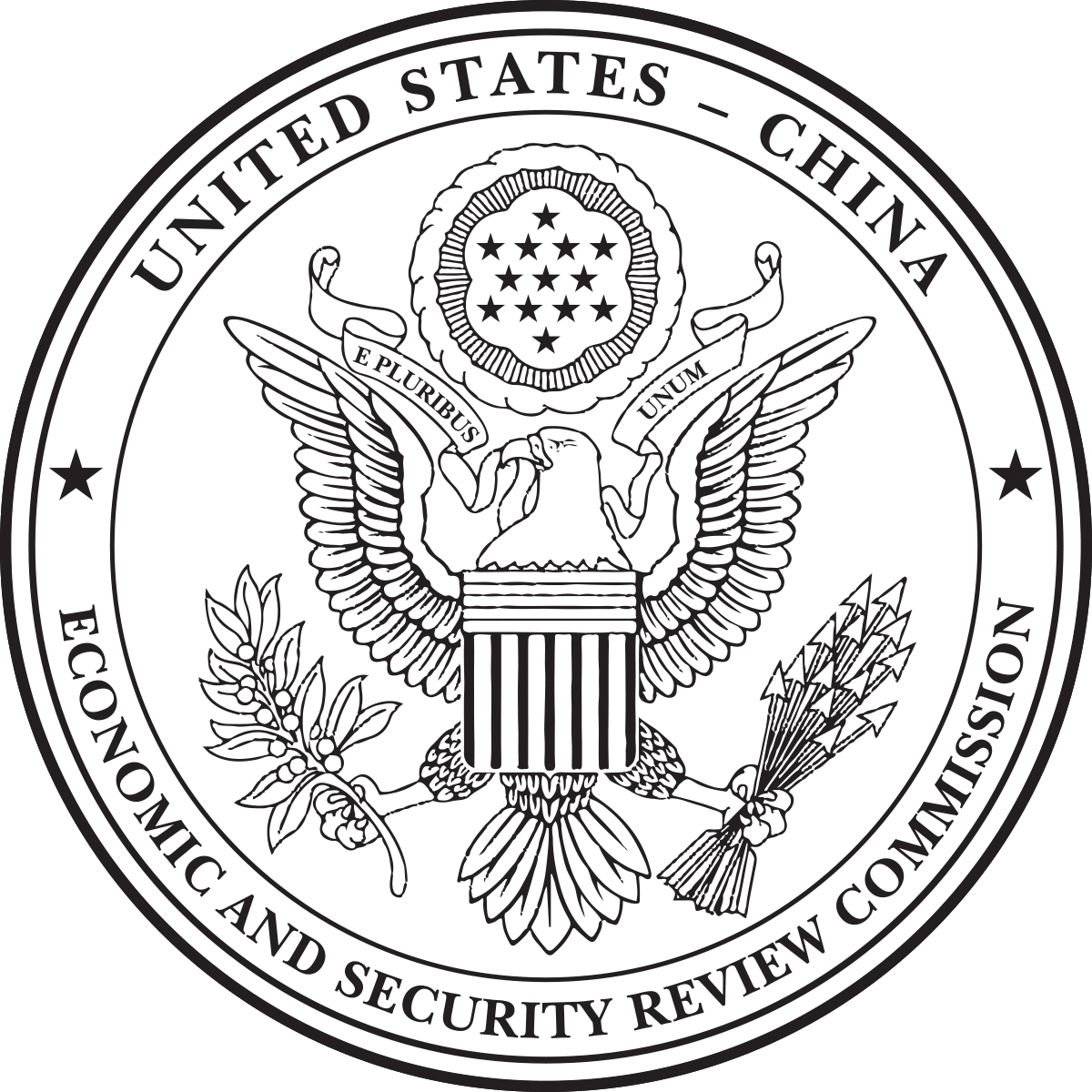×
Filter Results
Filter Results
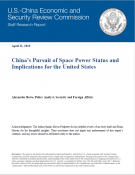
Staff Paper
China seeks to become an international leader in space, or what it terms a “space power in all respects.” In this role, Beijing aspires to lead international space-related innovation and exploration and establish an advanced system of infrastructure to serve its space sector. China has suffered some setbacks on projects crucial for the progression of program milestones, such as its heavy-lift launch vehicle program, and still lags behind the United States in its human spaceflight and space station program. Nevertheless, China’s space program is a source of national pride, and its consistent high level of political support and funding ensures progress toward establishing itself as a space power. In 2003, China joined the United States and Russia as a member of the exclusive group of countries to have conducted human spaceflight, and since then it has nearly completed a new, rival global navigation satellite system (GNSS)—set for completion in 2020—and demonstrated its willingness to undertake high-risk, high-reward missions, as reflected by its historic landing on the moon’s far side in 2019. China is likely to achieve future milestones in areas where it is lagging behind international standards on shorter timetables than when the United States accomplished similar missions.
This report examines China’s space goals and national space strategy; its progress toward those goals, including an examination of China’s progress in its advanced launch vehicle, long-term crewed space station, and lunar exploration programs; and the primary entities involved in setting and implementing its space policy. Finally, the report assesses the implications of China’s space program for the United States and its continued leadership in space.
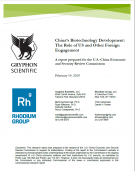
Contracted Research
The U.S.-China Economic and Security Review Commission released a report entitled China’s Biotechnology Development: The Role of U.S. and Other Foreign Engagement, prepared for the Commission by Gryphon Scientific and Rhodium Group. The report examines the development of China’s biotechnology industry and the role foreign trade, investment, and other linkages—particularly with the United States—have played in its evolution.

Contracted Research
The Internet of Things (IoT)—the interconnection of physical and virtual things via information and communication technologies—is being applied to virtually every sector from smart thermostats in households to swarms of autonomous drones in the battlefield. This report, contracted by the USCC and authored by SOS International, outlines China’s state-led approach to IoT development, assesses the implications for the U.S. economy, national security, and the privacy of U.S. data, and makes recommendations for U.S. policymakers. China’s concerted, state-led approach, including ongoing efforts to influence international IoT standards, has put China in a position to credibly compete against the United States and other leaders in the emerging IoT industry. China’s research into IoT security vulnerabilities and its growing civil-military cooperation raise concerns about gaining unauthorized access to IoT devices and sensitive data. In addition, China’s authorized access to the IoT data of U.S. consumers will only grow as Chinese IoT companies leverage their advantages in production and cost to gain market share in the United States based on the terms of use and sweeping Chinese government data access powers.
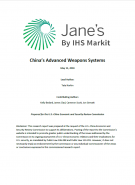
Contracted Research
The report examines five categories of China’s advanced weapons systems (counter-space, unmanned systems, maneuverable reentry vehicles, directed energy and electromagnetic railguns) and artificial intelligence applications for national defense. The report also assesses the implications of China’s advanced weapons programs for the United States and its allies and provides recommendations.
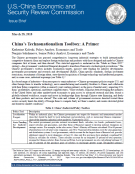
Issue Brief
The Chinese government has a comprehensive, long-term industrial strategy to build internationally competitive domestic firms and replace foreign technology and products with domestic equivalents first at home, and then abroad. This issue brief serves as a primer on the policies in the Chinese government’s toolbox for achieving its technonationalist targets, to include localization, massive subsidies for R&D, government procurement, China-specific standards, foreign investment restrictions, recruitment of foreign talent, state-directed acquisition of foreign technology and intellectual property, and, in some cases, industrial espionage.
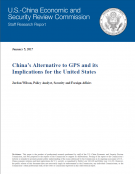
Staff Paper
China’s Beidou satellite navigation system—one of the country’s top space projects and only the fourth system of its kind currently in development or operation—is projected to achieve global coverage by 2020. This report examines the objectives behind Beijing’s decision to develop the system as an alternative to GPS, its efforts to build an industry around the system, and the effects this might have in security, economic, and diplomatic terms for the United States. The system’s primary purpose is to end China’s military reliance on GPS, although China’s associated industrial policies will likely affect U.S. firms operating in China’s market. Industry professionals assess there are no inherent risks to products such as smartphones receiving data from Beidou.
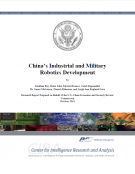
Contracted Research
The report examines the growth of China’s robotics industries and its development of unmanned industrial, service, and military systems, such as drones and driverless cars. The report assesses the economic and national security implications of these trends for the United States.
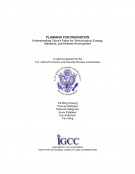
Contracted Research
The report provides an assessment of China’s state plans for civilian and defense-related science and technology, industrial, and energy development and their economic and security implications for the United States. The authors are Tai Ming Cheung, Thomas Mahnken, Deborah Seligsohn, Kevin Pollpeter, Eric Anderson, and Fan Yang, writing for the University of California Institute on Global Conflict and Cooperation.
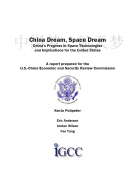
Contracted Research
Report prepared for the Commission by Kevin Pollpeter, Eric Anderson, Jordan Wilson, and Fan Yang of the University of California’s Institute on Global Conflict and Cooperation. The report examines China’s space programs and how they advance China’s national security, economic, and diplomatic interests. According to the report, China’s goal is to become a space power on par with the United States.
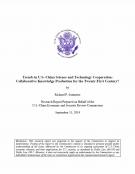
Staff Paper
This report examines 35 years of cooperation between the United States and China in the areas of science and technology (S&T) since the signing of the 1979 U.S.-China Science and Technology Cooperation Agreement.
